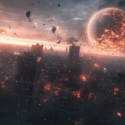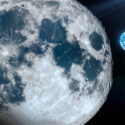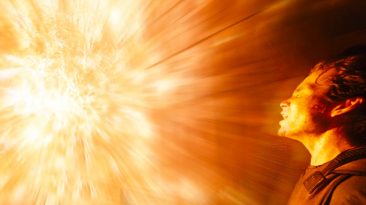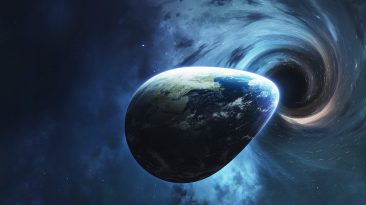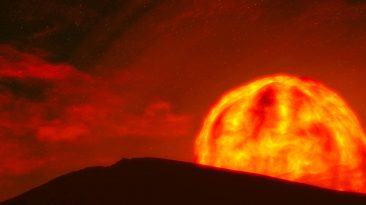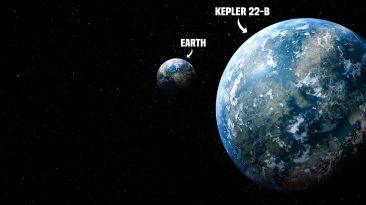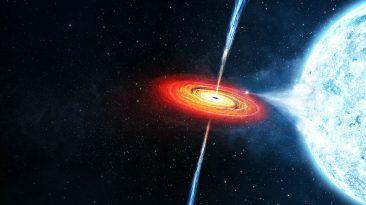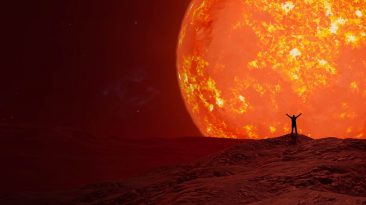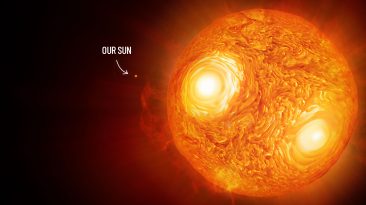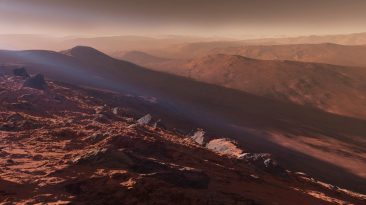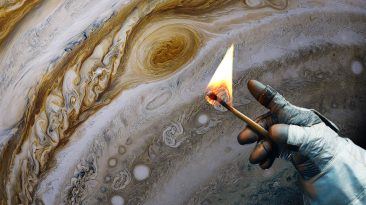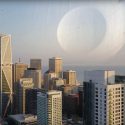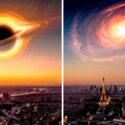Our Solar System is plunging into chaos. Better hang on tight. The planets are getting knocked out of orbit. What could kickstart this epic chain of events? How would this impact each and every planet? And how could it possibly make Earth even more hospitable to life?
The Solar System’s planets have remained in stable orbit around the Sun for billions of years. And they’ll likely remain so for at least another 100,000 years. Thanks, Newton’s first law of motion. But the forces that disturb this balance could already be underway. Like a giant rogue star not bound to any galaxy. Or a wandering black hole.
And bad news for us, our Universe is littered with agents of chaos, ready to disrupt our planetary neighborhood at any moment. It would all start with Neptune. Neptune doesn’t need to be knocked out of alignment much for bad things to happen. If this icy giant’s orbit changed by even 0.1%, it could trigger a series of events that really mess things up.
With Neptune’s orbit in flux, it would begin to influence the orbits of its neighbors. And sooner or later, each planet’s disturbed orbit would unleash total chaos in our Solar System. At first, you wouldn’t see much from Earth. Only astronomers would notice the slightest changes in planetary orbits. They’d be the first to know something really wrong was about to happen.
These disturbances would build up, and eventually they’d reach a tipping point. Neptune’s changed orbit would affect Uranus. These two ice giants would come dangerously close to each other. And then they’d pluck Saturn out of its orbit. This trio could be ejected out of the Solar System entirely. And none of the other planets would be safe from this ensuing cosmic pandemonium.
Because as Neptune, Uranus and Saturn were on the way out of our planetary neighborhood, they’d shove the biggest planet in the Solar System off its rails. Jupiter. Instead of revolving around the Sun in an almost perfect circle, Jupiter would now have an erratic elliptical orbit. Sometimes it would be closer, and other times it would be further away.
And this would impact Earth’s orbit as well. One peculiar effect would be a new kind of global warming. Our new orbit would result in the coldest parts of the planet reaching more pleasant temperatures. As this celestial domino effect continued, Venus’ orbit would change too.
If it started to spend more time further away from the Sun, would there be any chance that it could cool down enough to become habitable? Not exactly. Venus’ scorching temperatures run as high as 462 °C (864 °F). And that’s not just because of its proximity to the Sun. It’s due to its runaway greenhouse effect.
Venus’ thick atmosphere already reflects about 75% of any incoming radiation. A relatively small shift in its position wouldn’t be enough to offset the greenhouse gases that keep it sweltering. On the other hand, Mercury wouldn’t be let off the hook so easily. A new orbit could lead to a close encounter with the Sun. And that could eject it from the Solar System as well.
All these planets being forced into new trajectories could also lead to something a little more dramatic than just close encounters. They could collide. Venus and Mercury could slam into each other and form a new planet. And brace yourselves for the possibility of a full-on collision with Mars too. If that happened, it would be bad news for you.
If Mars crashed into Earth, there would be no way you’d survive the impact. And you’d have nowhere to run from this doomsday scenario. Should you be worried about any of this? Most flybys close to our Solar System, like a rogue star, probably wouldn’t lead to such dramatic destabilization. Anything we might consider to be a threat only occurs once every 100 billion years.
Sources
- “On The Long-Term Stability Of The Solar System In The Presence Of Weak Perturbations From Stellar Flybys”. Garett Brown, Hanno Rein. 2022. Monthly Notices Of The Royal Astronomical Society 515 (4): 5942-5950. doi:10.1093/mnras/stac1763. arxiv.org.
- “If Neptune’s Orbit Moves 0.1%, It Could Destabilize The Entire Solar System, Study Says”. Catherine Stoddard. 2022. foxweather.com.
- “How Do Stars Go Rogue?”. Fraser Cain. 2015. phys.org.
- “ORBITAL RESONANCES AND CHAOS IN THE SOLAR SYSTEM”. Renu Malhotra. 1998. lpl.arizona.edu.
- “Small Changes To Neptune’s Orbit By A Passing Star Could Wreck The Entire Solar System”. Alfredo Carpineti. 2022. iflscience.com.





